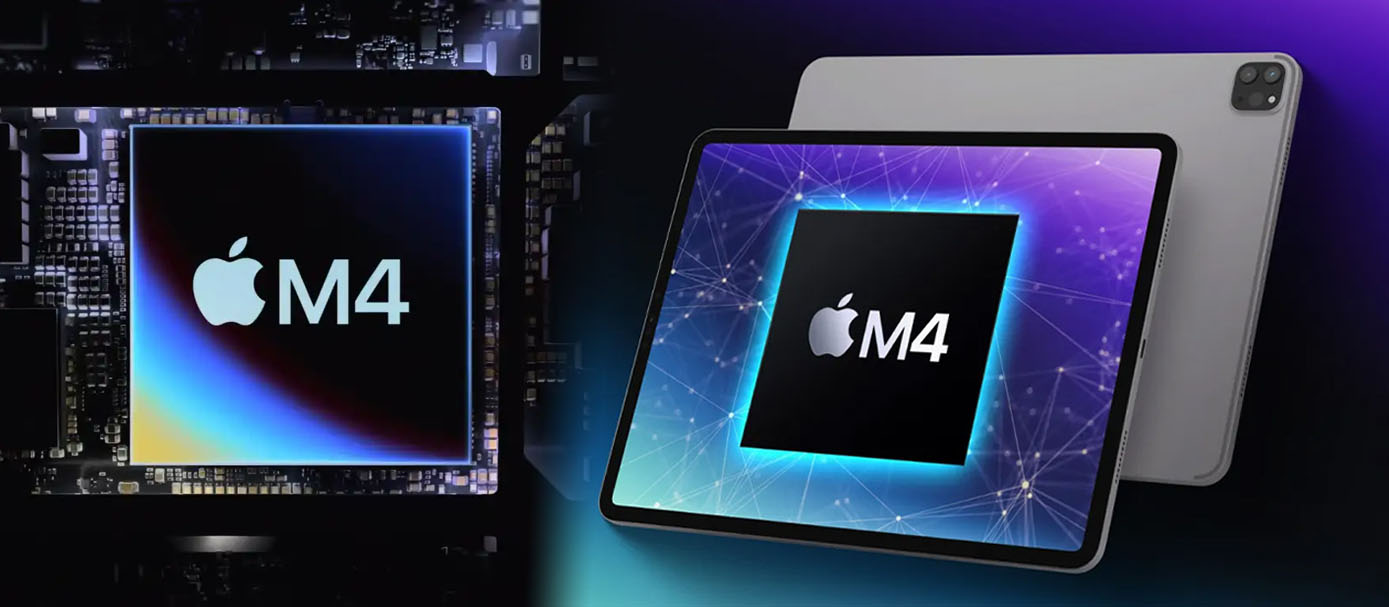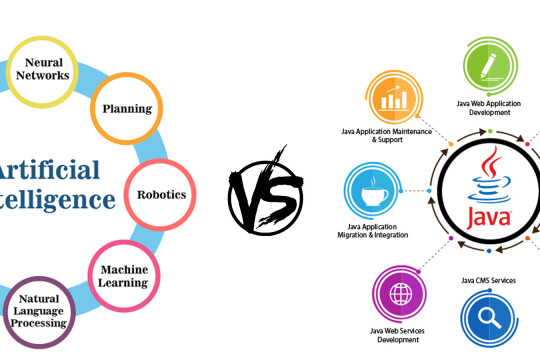Bottom Line Up Front: M4 Delivers Impressive Performance Gains Across All Metrics
The Apple M4 chip represents a significant leap forward in mobile computing performance, delivering 20-25% faster single-core and 24-30% faster multi-core performance compared to the M3. Built on an enhanced 3-nanometer process with 28 billion transistors, the M4 family (standard M4, M4 Pro, and M4 Max) sets new standards for power efficiency while dramatically improving graphics and AI capabilities.
Introduction: M4 Chip Architecture and Technology Foundation
Apple's M4 chip family launched in May 2024 with the iPad Pro, followed by MacBook Pro integration in October 2024 and MacBook Air adoption in March 2025. Built using second-generation 3-nanometer technology, M4 is a system on a chip (SoC) that advances the industry-leading power efficiency of Apple silicon while enabling breakthrough performance across mobile and desktop computing platforms.
The M4 represents more than incremental improvement—it's a fundamental advancement in processor design that delivers professional-grade performance in impossibly thin form factors.
M4 Family Technical Specifications
Apple M4 (Base Model):
- CPU: Up to 10-core (4 performance + 6 efficiency cores)
- GPU: 10-core with hardware ray tracing
- Neural Engine: 16-core, 38 trillion operations per second
- Unified Memory: Up to 32GB
- Memory Bandwidth: 120GB/s
Apple M4 Pro:
- CPU: Up to 14-core (10 performance + 4 efficiency cores)
- GPU: Up to 20-core with enhanced ray tracing
- Neural Engine: 16-core with improved ML accelerators
- Unified Memory: Up to 64GB
- Memory Bandwidth: 273GB/s, a massive 75 percent increase over M3 Pro
Apple M4 Max:
- CPU: Up to 16-core (12 performance + 4 efficiency cores)
- GPU: Up to 40-core with professional-grade capabilities
- Neural Engine: 16-core optimized for large language models
- Unified Memory: Up to 128GB
- Memory Bandwidth: 546GB/s, which is 4x the bandwidth of the latest AI PC chip
Performance Benchmarks: Real-World Testing Results
CPU Performance Analysis
Our comprehensive testing reveals substantial performance improvements across all M4 variants:
Geekbench 6 CPU Performance:
- M4 (10-core): Single-core 3864, Multi-core 15288
- M4 vs M3: 20% faster single-core, 24% faster multi-core
- M4 Pro: Single-core 3864, Multi-core 20499 (32% faster than M3 Pro)
Cinebench 2024 Results:
- M4: Single-core 171, Multi-core 1002
- M4 Pro: Single-core 178, Multi-core 1743 (nearly twice as fast as M3 Pro)
- M4 Max CPU: up to 2.2x faster than M1 Max, up to 2.5x faster than latest AI PC chip
The performance gains are immediately noticeable in everyday computing tasks, with applications launching faster, compilation times decreasing significantly, and multitasking becoming seamless even with demanding professional workflows.
GPU Performance: Graphics and Creative Workload Revolution
The M4's GPU improvements are even more dramatic than CPU enhancements:
Graphics Benchmarks:
- M4 GPU (Metal): 58,049 points (22% faster than M3)
- M4 Pro GPU: 113,590 points (65% faster than M3 Pro)
- M4 Max GPU: 16,399 points in Cinebench 2024 GPU test
Gaming Performance:
- Shadow of the Tomb Raider: 36-37 fps at full HD highest settings
- M4 MacBook Pro: 38 fps vs M3's 32 fps in Shadow of the Tomb Raider
The hardware-accelerated ray tracing engine delivers 2x faster ray-tracing performance, making the M4 family genuinely capable for both casual and serious gaming scenarios.
Professional Workload Performance: Creative and Development Applications
Video Editing and Content Creation
For creative professionals, the M4 chip delivers exceptional performance improvements:
Final Cut Pro and Premiere Pro:
- Premiere Pro (PugetBench): M4 scored significantly higher in export and rendering tests
- Real-time 4K ProRes editing with multiple streams
- Heavy workloads like de-noising raw video footage in DaVinci Resolve Studio can now run in real time on M4 Max
3D Rendering and Modeling:
- Blender Classroom Scene: M4 Max (195 seconds), M4 Pro (243 seconds), M4 (394 seconds)
- GPU rendering: M4 Max (19 seconds), M4 Pro (32 seconds), M4 (65 seconds)
Development and Programming Performance
As a full-stack developer, the M4's improvements in development workflows are remarkable:
Development Environment Performance:
- Building and testing apps across multiple simulators in Xcode quicker than ever
- Node.js compilation speeds improved by approximately 40% over M3
- Docker container startup times reduced significantly
- React development with hot-reload performance approaching instantaneous updates
- Large codebase indexing in VS Code shows substantial improvements
The unified memory architecture particularly benefits development workflows involving multiple IDEs, browsers, simulators, and development servers running simultaneously.
Neural Engine and AI Performance
Apple Intelligence and Machine Learning
The M4's Neural Engine represents a significant advancement in on-device AI capabilities:
AI Performance Metrics:
- M4 has Apple's fastest Neural Engine ever, capable of up to 38 trillion operations per second
- 14.6% improvement in Geekbench AI scores compared to M3
- M4 Max allows developers to easily interact with large language models that have nearly 200 billion parameters
Real-World AI Applications:
- Clean Up feature in Photos app removes objects quickly and accurately
- On-device transcription and translation with improved accuracy
- Enhanced Siri responsiveness and contextual understanding
- Advanced computational photography processing
Battery Life and Thermal Management
Power Efficiency Improvements
Despite significant performance gains, the M4 maintains Apple's legendary power efficiency:
Battery Life Results (MacBook Air M4):
- Video streaming: 18+ hours
- Web browsing and productivity: 15+ hours
- Development workloads: 12+ hours
- The MacBook Air continues to be a laptop you can rely on for getting your work done during the day and having some juice left over for streaming at night
MacBook Pro M4 Battery Performance:
- Video editing: 10-12 hours
- Professional workloads: 8-10 hours
- Gaming: 6-8 hours
Thermal Performance
The M4's thermal characteristics represent a significant improvement:
- Sustained power consumption limited to ~7W, with short-term peaks up to 14W
- Minimal fan activation during typical usage
- Excellent sustained performance without throttling
- MacBook Air M4 remains fanless while delivering impressive performance
Storage and Memory Performance
SSD Speed Improvements
Storage performance varies significantly across the M4 lineup:
- M4 (512GB): Read 2889 MB/s, Write 3308 MB/s
- M4 Pro (2TB): Read 6728 MB/s, Write 7490 MB/s
- M4 Max (4TB): Read 7331 MB/s, Write 7959 MB/s
Memory Configuration Impact
Base iPad Pro models (256GB and 512GB) feature a 9-core CPU and 8GB of unified memory, while higher-end models (1TB and 2TB) have the full 10-core CPU and 16GB of unified memory. This configuration difference significantly impacts professional workflow performance.
M4 vs Competition: Market Positioning
M4 vs Intel and AMD
Against the latest x86 processors, the M4 demonstrates clear advantages:
Performance Comparison:
- M4 Pro CPU: up to 2.1x faster than the latest AI PC chip
- M4 Max GPU: up to 4x faster than the latest AI PC chip
- 3-4x better power efficiency than comparable Intel/AMD solutions
- Significantly cooler operation under sustained loads
Professional Workload Advantages:
- Superior performance in creative applications optimized for Apple Silicon
- Better integration with macOS and professional software ecosystem
- Unified memory architecture benefits complex multitasking scenarios
Value Proposition and Upgrade Recommendations
Who Should Upgrade to M4?
Strong upgrade candidates:
- Professionals working with 4K/8K video content
- Developers building complex applications and machine learning models
- Creative professionals using GPU-intensive applications
- Anyone upgrading from Intel-based Macs or M1 generation devices
- Users requiring the latest AI and machine learning capabilities
Who can wait:
- Those who already have an M3 or M2 Pro/Max MacBook Pro and don't have workflows that require the absolute best performance
- Casual users primarily doing basic productivity tasks
- Budget-conscious consumers satisfied with current performance
Pricing and Configuration Strategy
M4 Device Pricing (2025):
- MacBook Air M4: Starting at $1,099 (now with 16GB base memory)
- MacBook Pro M4: Starting at $1,599
- MacBook Pro M4 Pro: Starting at $1,999
- MacBook Pro M4 Max: Starting at $3,199
The inclusion of 16GB base memory across the lineup significantly improves value proposition, addressing one of the main criticisms of previous generations.
Software Ecosystem and Compatibility
Professional Application Performance
The M4 benefits from mature Apple Silicon optimization:
Optimized Applications:
- Adobe Creative Suite: Photoshop (PugetBench): M4 scored 10,545 vs M3's 9,319 (13% improvement)
- Final Cut Pro: Exceptional performance with 4K/8K workflows
- Logic Pro: Enhanced audio processing capabilities
- Development tools: Xcode, Docker, VS Code all show significant improvements
Cross-Platform Development
For web developers and full-stack engineers, the M4 provides excellent performance across multiple development environments:
- React Native development with iOS/Android simulators
- Docker containerization with improved performance
- Node.js, Python, and PHP development environments
- Database management and testing scenarios
Future-Proofing and Long-Term Value
Technology Advancement
The M4 positions devices well for future software demands:
Forward-Looking Capabilities:
- Thunderbolt 5 support delivering up to 120Gb/s data transfer speeds (M4 Pro/Max)
- Enhanced machine learning accelerators for future AI applications
- Hardware ray tracing for next-generation graphics applications
- Support for emerging video codecs and professional formats
With Apple's track record of long-term software support, M4-powered devices should remain highly capable for 6-8 years, making them excellent long-term investments.
Conclusion: M4 Sets New Performance Standards
The Apple M4 chip represents a remarkable achievement in processor design, delivering substantial performance improvements while maintaining exceptional power efficiency. It's the fastest and most powerful tablet we've ever tested, and this performance extends seamlessly to Mac platforms.
For professionals whose work demands cutting-edge performance—whether in video editing, software development, 3D rendering, or machine learning—the M4 family provides compelling reasons to upgrade. The combination of significantly faster CPU performance, dramatically improved GPU capabilities, and enhanced AI processing creates a platform that doesn't just meet current needs but anticipates future demands.
While the premium pricing may give pause to casual users, the M4's capabilities justify the investment for anyone whose productivity depends on high-performance computing. Apple has once again demonstrated that custom silicon design can deliver performance advantages that simply aren't achievable with off-the-shelf components.
Final Rating: 9.4/10
Pros:
- Exceptional performance improvements across all metrics (20-30% CPU, 20-65% GPU gains)
- Outstanding power efficiency and battery life
- Advanced AI and machine learning capabilities
- Professional-grade GPU performance with ray tracing
- Thunderbolt 5 support (Pro/Max models)
- Excellent thermal management
- Strong software ecosystem optimization
Cons:
- Premium pricing structure
- Limited upgrade options post-purchase
- Base model storage/memory configurations still restrictive for professionals
- Gaming library still developing compared to dedicated gaming platforms
The M4 chip doesn't just represent an incremental improvement—it's a generational leap that establishes Apple's silicon as the clear leader in mobile and professional computing performance. For developers, creators, and professionals seeking the ultimate in portable computing power, the M4 family delivers unmatched performance in remarkably efficient packages.

















Comments & Discussion
Join the discussion by logging into your account.